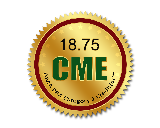
Leon P Bignold
University of Adelaide, Australia
Title: The kinds of genomic events for the histopathologic complexities of tumors
Biography
Biography: Leon P Bignold
Abstract
1. Tumors are accepted to arise by way of somatic mutation / genomic event, but no particular mutation has been found in all tumors. Conventional (Mendelian) genetics may be able to account for combinations of traits by mutations of complex loci. The occurrence of tumors in different types could be explained by the existence of one or a small number of different tumorigenic-when-mutant complex loci for each tumor type (1). Variability in tumors may be explicable by variable functional morphisms / particular nucleotide alterations in genes in the complex loci. 2. The kinds of mutations (genomic events) which can affect complex loci are mainly (i) Oligonucleotide deletions or insertions causing frameshift mutations. (ii) Chromosomal-type errors, which are mainly deletions, amplifications, inversions and transpositions. These can be so large as to be visible in chromosomes by microscopy (hundreds of megabases), or so small that they can only be demonstrated by various probe-hybridization methods (tens of kilo bases). (iii) A lesion comprising dense clusters of nucleotide errors in lengths of DNA up to a replication 'bubble' (approximately 150kb) long (2). These focal replicative infidelity lesions are difficult to detect. 3. Variable functional morphisms could occur with any of these mechanisms of genomic events in complex loci. 4. These issues may be resolvable by new methods for high throughput nucleotide sequencing. (1) Bignold LP "Principles of Tumors", Elsevier Academic, 2015, chapters 1 and 8 and Appendix 2. (2) Bignold LP. Carcinogen-induced impairment of enzymes for replicative fidelity of DNA and the initiation of tumours. Carcinogenesis. 2004 25:299-307.

